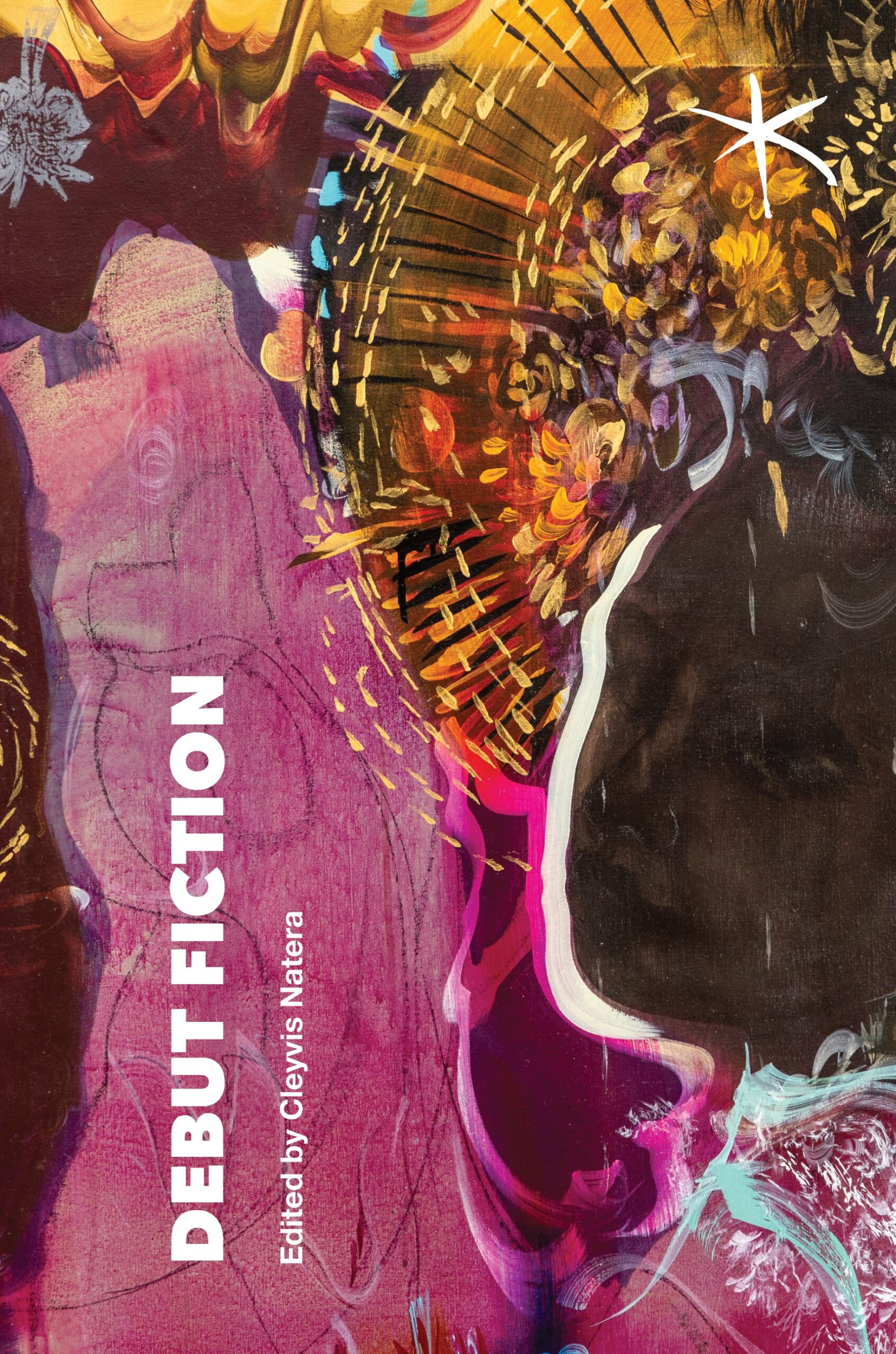
At five years old, Armen would say, “I want,” and Karena would complete the sentence with, “chicken and rice.” To them, being born three days less than a year apart was equivalent to having been born on the same day. They were twins. The kind of twins that live in unison, but just happen to be two distinct entities, like the right and left arms of one body. They shared the step stool in the bathroom while brushing their teeth, her left foot and Armen’s right, the other dangling from either side as they leaned against the sink. Good digestion starts with the teeth, they had heard somewhere and repeated nightly.
They would watch cartoons in the morning before school, and The Three Stooges in the evening before bed. Once the old man let them stay up after the Stooges to watch a movie about the Wild West in America. He never let that happen again after the twins cut strips from the bottom of Loosi’s lace curtains to use as rope and hogtie their stuffed animals.
One Saturday night, they particularly enjoyed watching an episode with the Stooges sawing away at a wooden object. The next morning the twins awoke at dawn. Armen climbed up the counter and brought down the cereal while Karena waited with the milk in hand. They shared one large yellow bowl with two spoons to enjoy their favorite breakfast: sweetened cereal flakes with feta cheese. One of their own creations.
After they had finished breakfast and placed the dishes in the sink, Armen pushed the stool under the drawer beside the old gas stove. Karena climbed up to get the bread knife. They tiptoed across the vinyl kitchen floor and into the dining room. They could hardly contain their excitement, stopping regularly to cover their mouths with their hands as they giggled. They were afraid of waking the old man, but their excitement was too great for either to really think about anything other than the project at hand.
They took hold of one of the dining chairs and laid it down on the floor. They sat opposite each other with the chair between them. Karena held onto one end of the bread knife and Armen the other. She pulled as he pushed and they continued from there, back and forth with swift movements they sawed away. Just like the Stooges. One leg followed by another, done with one chair and moving on to the next. They were making good time. After sawing the legs off all the chairs, they put them back together, delicately balancing the seats on the sawed off legs so that no one would be able to tell.
Karena looked to Armen and rubbed her hands together, imagining herself as one of the villains from their morning cartoons. I’m only missing the mustache, she thought. Armen sat with his legs folded under him, biting his bottom lip and wiggling from left to right as he often did when excited and impatient. Side by side they sat in front of the TV, watching Sunday morning cartoons and awaiting their unsuspecting victim.
Loosi walked out from the bedroom. Armen and Karena had secretly hoped that the old man would have been first to fall prey to their trap. Loosi would have to do, an innocent victim of inopportune timing. Armen and Karena winked at each other and shouted a mischievous “Good morning.” Loosi shot them a quick glance, but quickly busied herself in the kitchen, preparing tea, putting away the dishes from the night before, softly singing to herself off-key.
Their hearts beat quickly in their chests. Armen continued to wiggle from side to side, his entire body wagging like the tail of a giant dog. Karena felt her ears turning red; the excitement was too much. It’s too much, she wanted to shout.
Finally, as Loosi began setting the table for breakfast, she reached for one of the dining room chairs and tried to pull it out. She found herself holding the backrest while the crooked remnants of the oak-stained wooden chair lay scattered across the grey carpet. Armen and Karena heard the commotion, but didn’t turn around. They giggled quietly to themselves. Loosi tried another chair and then another. Armen and Karena lost the ability to control their laughter.
“Armen, Karena!” Loosi yelled, more like it was one word than two names. For such a gentle creature, her scream was gut wrenching. A moment later, the old man shuffled into the hall from the bedroom in his striped pajama bottoms and white undershirt. He stood between the living room and the dining room, saw the mess, and quickly scanned the room to rest his eyes on the twins. He turned back into the bedroom and rushed out again holding the leather belt.
Armen and Karena exchanged a quick glance of panic before running to hide behind the couch’s brown cushioned comfort, wishing they could disappear into the white plastered walls like the smoke from the old man’s cigarettes. He pulled the couch away from the wall and they screamed as they held onto each other. Loosi ran up to the old man from behind and grabbed his arm, pleading for him to leave the children alone. The old man pushed her back with an effortless shove. Loosi stumbled, tripped over her light pink nightgown, and hit the floor. Armen and Karena ran down the hall and into the bedroom. They shut the door and jumped on the bed to hide. The old man barged in and pulled the cover off the twins, the belt lashing down. Armen threw a pillow over Karena and took the lashes for the two of them. Karena screamed and cried as she tried to get out from under Armen. Armen remained silent, not once wincing from the pain. Loosi begged for it to stop while hitting the old man with her slipper. Eventually, he tired and walked away lighting a cigarette. His first inhale was long and deep, as if relaxing after accomplishing a great feat.
Karena lay on the tear-stained blankets. Armen lay with his eyes open, staring blankly at the wall in front of him, the lashes on his back swollen and throbbing. Loosi sat on the edge of the bed with her head in her hands. No one moved, as though everything would be different if they remained motionless long enough. Eventually Loosi stood and walked out, shutting the door softly behind her. Karena peeked her head out from the covers and saw Armen, his wounded back, his black hair forming an upside-down mountain top as it peaked perfectly at the nape of his neck. At times Karena would longingly watch Armen, as though their time together was limited. She admired his unique grace. His black eyelashes extending long and thick, creating an outline for his large eyes in likeness to the drawings of Armenia’s ancient kings.
“Armen?” she whispered.
There was no response.
The world of that tiny bedroom was frozen in white plastered loneliness. She could feel Armen’s anger, a silent bitterness growing in him.
Karena covered her head with the blanket and lay motionless. She drifted off to sleep, but must have had a nightmare. She woke up from the sound of her own screams, sweating.
Loosi rushed into the room. “What’s happened?” She swooped Karena into her arms, resting her head against her chest. Armen rose quietly and walked over to crawl into the space between their mama and the edge of the bed.
Karena tried to tell Loosi that she had had a dream, but couldn’t remember what it was about. Loosi stroked her dark hair and gently kissed Armen’s forehead as she told the story of how the wise words es el ge ansanee came about.
It was the Shah of ancient Persia who summoned a highly celebrated poet and asked him to create one verse––one sentence that would hold true under any circumstance––and could devotedly be applied to every emotion. The poet returned with these words, es el ge ansanee, and was banished from the palace. On his deathbed, the Shah asked the poet to grace the palace with his presence once again. This too shall pass.
Loosi and the twins cuddled together on the bed, telling stories and laughing softly. The rest of the day passed uneventfully, and they were able to sleep that night without interruption. The old man did not sleep. He sat on the floor in the corner of the living room smoking cigarettes and drinking tea.
The following morning, Armen had a sore throat. It wasn’t the first time he’d woken up with bright red tonsils, unable to swallow and preferring not to speak. Loosi kept him home from school and on a strict diet of rice and yogurt. She was glad that she had remembered her mother’s recipe since the only yogurt in Germany came with fruit. She was sure that no one in Iran would believe that people ate their yogurt sweet.
The first morning that Armen was back to his full strength, Loosi made waffles for breakfast, a treat she usually reserved for weekends. The twins ate greedily then prepared for school. Karena helped Armen tie his shoes and zip up his jacket. Sometimes he had a hard time completing small tasks with his hands. Bundled in scarves and thick coats, the twins held hands and walked beside Loosi. They enjoyed their walk to school along the Pader River, its thick gray water gurgling over rocks and branches. Autumn in Paderborn was cold and gloomy in a way that seemed to fill the world with a lingering fog, as though each day existed only in a dream.
The twins were admiring the river when Loosi suddenly came between them and grabbed each one by the arm. She quickened her pace and they struggled to keep up. Something hard hit Karena on the crown of her head. She stopped to look up, expecting something had fallen from one of the trees. Loosi pulled Karena’s arm and dragged her along, not letting her stop. There were footsteps behind them.
“Hurry.” Loosi’s scream was frightening, her grip twisting their wrists.
“Hunde.” A man shouted from behind. “Run away dogs!” There were three men chasing Loosi and the twins. They wore black with chains dangling from their pockets and had long colorful hair that stood up above their heads.
“We’ll throw your children in the river!” They threw a few more rocks.
“Run! Run!” Loosi was breathing heavily. The twins tried to keep up but the cold air hurt to breathe.
“Filthy Arabs,” the men shouted.
The footsteps behind them stopped. They could hear the men laughing. The chase lasted less than a minute, but Loosi and the twins ran the rest of the way to school. Karena lost her scarf somewhere along the way.
“They didn’t mean any harm,” Loosi said once they reached the school and had stopped long enough to catch their breaths. “I think they were still drunk from last night.” The twins nodded in agreement, as though they understood.
“Are we Arab, Mama?” Karena asked.
“No. We’re Armenian. You know that.” Loosi said. “Go in now, you’ll be late for school.”
“Why did they call us Arab?” Karena wasn’t sure what Arab meant.
“They must have thought that’s what we are.” Loosi was growing impatient.
“Is that why they threw rocks?”
“No. They just didn’t know what they were doing.”
Loosi hugged them longer than she normally did. She squeezed the back of Armen’s neck as though she needed to be sure that he was still there. He hadn’t spoken since they started running.
“What’s your name?” Mrs. Shultz asked with an anticipatory smile while parents and other teachers looked on. Armen and Karena stood at the center of the circle of teachers and parents holding hands, Armen’s right leg crossed over his left as he peered out at the women.
“Schön Karena,” Karena said. All the women laughed. She had learned that most people loved hearing her say it, and asked regularly just to hear it again.
Mrs. Shultz laughed with her whole body and ran her veiny hand down Karena’s black hair, repeating the word schön, schön. Beautiful. The Germans often told Karena and Armen that their black hair was beautiful. For some time Karena believed that schön preceded her name. Schön Karena.
Loosi stood outside of the circle until the twins saw her and she nudged her way toward them. She nodded a greeting to Mrs. Shultz and the crowd slowly dispersed.
“How was school today?” Loosi asked as the three of them made their way back to the apartment.
“We danced,” Karena said.
Each day their teachers walked the class upstairs to the attic with a slanted ceiling and lots of windows that trickled in the pale sunlight. There was a wall of cubbyholes where all the students housed their dance shoes. Karena’s were made of red canvas with a picture of a mouse printed on the toe of each shoe. They’d change their shoes, form a circle, and dance to Mrs. Shultz singing German folk songs while the assistant teacher jingled the tambourine. It was Karena’s favorite part of the day.
“What about your day, Armen?” Loosi looked down at him.
Armen shrugged his shoulders. He didn’t like dancing or his blue plaid dance shoes.
“I think you need a haircut, Armen. Let’s get you a real one this time.” Loosi led them into a salon. It was the first time the twins had been in a salon. The hairdresser was a round woman with short blond hair and a big smile. Loosi asked for a haircut in her broken German and pointed to Armen. The woman sat him down on a tall leather chair in front of the mirror. There was a poster on the wall of a teenager with his blond hair spiked out.
“I want you to make my hair that color,” Armen said to the hairdresser.
She chuckled. “You’re too young now. Come back in ten years and I’ll do it for you.”
Armen watched himself in the mirror as she cut his hair.
After dinner, while Loosi was cleaning up the kitchen and the old man was still watching TV, the twins decided to play in the other room instead of watching the Stooges. Loosi didn’t think anything of it until she noticed that they had been too quiet for too long. She followed their whispers into the bathroom and gasped at the sight of the twins.
“We’re playing hairdresser, Mama.” Armen smiled.
“Do you like it?” Karena turned her head to model her new cut. They had taken Karena’s red plastic chair into the bathroom and placed it in front of the mirror. Karena sat down while Armen draped a bed sheet over her shoulders and took up the little plastic scissors that had been part of a gift.
“What would you like today?” Armen had asked in German.
“Make my hair like yours,” Karena said.
It had taken Armen sometime to cut through Karena’s long thick hair with those plastic scissors, but he had done it. Her cut was uneven, alternating between one to two inches in length. The twins giggled and Karena couldn’t stop admiring herself in the mirror.
“Just clean up that hair and go to bed.” Loosi shook her head and walked out of the bathroom. She held back from yelling at them because she wanted to delay the old man finding out.
The following morning, Mrs. Shultz was standing outside of the building with another parent when Loosi and the twins reached the school. Loosi waved hello and bent down to say goodbye to the twins.
“Why did you do that to her hair?” Mrs. Shultz approached them.
“The kids were just playing together,” Loosi said.
“It’s so crooked.” Mrs. Shultz touched Karena’s short strands and gave Loosi a look of horror.
“Isn’t it schön?” Karena asked. She and Armen giggled.
Loosi went out that evening and returned with an envelope in her hands. She brought the aroma of autumn into the apartment and Karena could feel the chilled wind wrapped around Loosi’s blue coat. She loved the smell of the cold: the scent of her mother coming home. Karena reached up and wrapped her arms around Loosi’s thighs, shoveling her face into the deep blue coat to swim in that familiar fragrance. Loosi didn’t seem to notice Karena clinging to her, nor did she comment on Armen’s unresponsiveness. Loosi’s eyes were fixed on the envelope as she slipped her index finger between its lips and tore it open. The letter was in English and Loosi used the little she knew of that language to decipher the contents.
“We’re going to America.”
Armen pulled himself away from the TV, and walked over to Loosi. The twins weren’t exactly sure what that meant, but knew that it was what they had been waiting for as far back as either could remember. They jumped up and down, circling Loosi and cheering. Loosi made her way toward the phone with slow mechanical steps. It used to be all Loosi and the old man talked about.
Armen walked after her and pushed his hand into her palm. Loosi paused and look down. His physical affection was so rare that he had her full attention.
“Mama, when we go to America, can you, Karena, and I live together without Sombat?”
“Armen? You don’t want to live with Sombat?” Loosi asked, though she knew he didn’t want to live with the old man. She didn’t want to live with him either. “He’s your father.”
Armen stood with his head slightly tilted to the left as his eyes stared into Loosi’s.
Loosi didn’t know what to say without disappointing him so she removed his hand from hers, picked up the receiver, and dialed the numbers on the calling card.
“We just got the letter. We only have three days. Looks like we’ll see you at the airport on Thursday,” Loosi said. She didn’t sound excited. “After four years of waiting to go to America, they give us three days to get ready.”
“I want to talk to him. I want to talk to him,” Karena knew Loosi had called their Uncle Martik in America because she was speaking very loudly.
Loosi handed her the phone.
“Hi Uncle Martik. We’re going to see you. We can play and eat American cheeseburgers together.” Karena spoke with giggles between each of her words.
“Don’t trouble your mom on the way over.” Uncle Martik sounded very far away.
Armen and Karena imagined him to be an old man with a long white beard, even though they knew he was younger than their mother. Karena turned to look at Armen and Loosi, expecting something big to happen. Loosi went into the kitchen and started peeling potatoes.
“Mama. What are you doing?”
“I’m making dinner. What does it look like I’m doing?”
“But what about America?” Karena started to fear that it wasn’t real.
“We know we’re going to America, but what am I supposed to do about it now?”
Disappointed, Karena returned to the living room and started a game of being a bank teller behind a cardboard teller window waiting for Armen, the dangerous outlaw, to rob her with his cowboy gun.
Armen and Karena were almost done setting the table when the old man walked in through the front door. “Is dinner ready?”
“Sosik. Sosik. We’re going to America,” Karena shouted as she ran toward him with her arms stretched open, anticipating a hug.
Loosi sighed.
“What is she saying?” he walked past Karena.
She lifted her open arms and spun around like a ballerina. The old man’s smell of cigarettes and beer lingered in the air as he walked toward the kitchen. Armen didn’t move.
“Tell me what is going on?”
“The letter came. It’s here on the counter,” Loosi said.
Sombat nodded to himself as he read the letter. He folded it several times until it was a small square, and placed it in his shirt pocket. His pace was hurried. He took long heavy strides down the hall. The twins looked up, but didn’t move when they heard the sound of things being thrown around in the bedroom.
“Dinner is ready.” Loosi placed a steaming plate of rice and potatoes on the table.
After dinner, the old man rummaged through the house without a shirt on, breaking the bookshelf and potted plants. “We don’t have any time,” he shouted.
“What are you doing?” Loosi stood in the center of the living room with shreds of paper, empty boxes, and furniture scattered across the floor. The twins stood behind her. Neither of them understood why everything needed to be destroyed.
“We can’t take it with us. We’re leaving anything that doesn’t fit in those four suitcases.” Sombat ripped up the bed sheets and a stuffed animal.
Karena cried at the sight of her koala missing an arm. Armen put his arm around her shoulders. “Es el ge ansanee,” he said.

Ani Kazarian writes essays, short stories, and screenplays, and is at work on her first novel. Her research interests include literature, culture, history, and trauma. She lives in Los Angeles with her husband.







